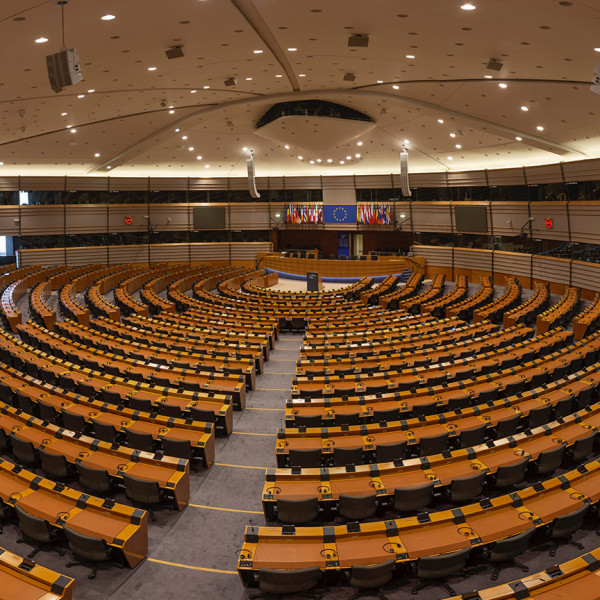
New Courses
Our Courses
Academic Info
Resources
DegreeBachelor
Semesters6
Credits180
-
Admission Conditions
Admission Conditions
Podem candidatar-se a este ciclo de estudos os que apresentem candidatura através do concurso institucional de acesso e tenham aprovação a uma das seguintes provas:- 06 Filosofia
or- 11 História
or- 17 Matemática Aplicada às Ciências Sociais
or- 18 Português
Candidates may also apply via the regimes of institution/programme transfer or via Special Application, in accordance with the legal regulations in force (holders of higher education degree, holders of a Technological Specialization Course, holders of Professional Higher Technician Course or Over 23 years of Age). Candidates who meet the requirements defined in the International Student Statute can also apply.
-
Knowledge, abilities and skills to be acquired
Knowledge, abilities and skills to be acquired
The graduate student in Political Science acquires skills that equip them with a solid theoretical and practical preparation for the wide range of vocational opportunities that the rediscovery of the political-democratic-party system after the 25th of April of 1974, necessarily bears in the contemporary Portuguese society and the "Lusophone Space". The graduate student acquires general skills concerning the basic essential knowledge pertaining to the functioning of Public Institutions and the different groups that participate in the running of the same, as well as in understanding the attitudes and behaviours of citizens. The graduate student in Political Science and International Relations is a professional who, individually or as part of a team, is able to observe, characterize and evaluate the components that define certain socio-political contexts and intervene, directly or indirectly, in their modification. In more formal contexts, the graduate student in Political Science can be included in administrative or management bodies at national, regional, local and international level (in terms of Europe and the Lusophone Space).
-
Objectives
Objectives
The objective of the Bologna Declaration is to improve the quality of higher education across Europe, during the next 10 years. Thus, this document has highlighted the importance of involving students in constructing a project of lifelong education, focusing mainly on the development of both personal and social skills that will enable adaptability to changes and the challenges ahead. The licentiate degree accepted the Bologna challenge and adapted its EP to these principles and launched a major overhaul of the study and teaching methods in force. The 1st licentiate degree in Political Science and International Relations has a duration of three years or six semesters. It has a core of mandatory courses that are denominated as Majors and gives the students the opportunity to complete their training by choosing optional subjects and they may choose to include Minors from other scientific areas. It presents 4 Minors to students from other courses in Political Science, International Relations, Public Administration and Policy and Psychoanalysis.
-
Study plan
Study plan
-
1º Ano / Common Core
- [1º Semestre]
-
History of Political Ideas and Theories
6 ects -
Introduction to International Relations
7 ects -
Introduction to Political Science
7 ects -
Introduction to Research Methodologies
5 ects -
Political Sociology
5 ects
- [2º Semestre]
-
Contemporary Political History
6 ects -
International Institutions and Organisations
7 ects -
Introduction to Economy
6 ects -
Introduction to Law
6 ects -
Scientific Research Methods and Techniques
5 ects
-
2º Ano / Common Core
- [1º Semestre]
-
Comparative Policy
7 ects -
Constitutional Theory and Constitutional Law
5 ects -
European Union Institutions and Policies
6 ects -
International Relations Theory
7 ects -
Political Economy and Globalization
5 ects
- [2º Semestre]
-
Diplomacy and Foreign Policy
7 ects -
Human Rights and International Security
5 ects -
Political Parties and Pressure Groups
5 ects -
Public Administration and Administrative Law
6 ects -
State Theory
7 ects
-
3º Ano / Branch of International Relations
- [1º Semestre]
-
Geopolitics and Strategy
6 ects -
International Policy
7 ects -
Political Socio-Economics of the European Union
6 ects -
Public International Law
6 ects - Nameless
- [2º Semestre]
-
Global Governance
6 ects -
Political Socio-Economics of the Portuguese-Speaking Area
6 ects -
Portuguese Foreign Policy
7 ects - Nameless
-
Sem Nome
6 ects
-
3º Ano / Branch of Political Science
- [1º Semestre]
-
International Policy
7 ects - Option I
-
Political Systems and Voting Behaviours
6 ects -
Political Thought
6 ects -
Regional and Municipal Administration
6 ects
- [2º Semestre]
-
Comparative Political Systems
7 ects -
Global Governance
6 ects - Option II
-
Portuguese Foreign Policy
7 ects -
Surveys, Opinion studies and Polls
5 ects
-
1º Ano / Common Core
-
Options
Options
- Option I
- Nameless
-
Option II
- Citizenship, Political Culture and Social Movements (Option II)
5 ects - Public Opinion and Political Communication (Option II)
5 ects
- Citizenship, Political Culture and Social Movements (Option II)
-
Nameless
- Asian Space ()
5 ects - Euro-Atlantic Space ()
5 ects - Lusophone Space ()
5 ects
- Asian Space ()
-
Course Team
Course Team
-
Career Opportunities
Career Opportunities
Vocational opportunities extend to virtually all sectors of society (political parties, associations, unions, companies, central, regional and local governments, mass media, diplomacy and international organizations).
-
Future Studies
Future Studies
The Licentiate degree is the starting point for the logical furtherance of studies in Master of Political Science taught at the Lusophone University (¿Universidade Lusófona¿).
-
Scientific Areas
Scientific Areas
Ciência política e cidadania
Lisboa | F. Ciências Sociais, Educação e Adm.
Current Application Dates
Fees
Course Direction
Secretariat
-
Telephone extension732
-
LocationSala C.1.23
-
Service hours3ª e 5ª feira das 15:00 às 18:00 4º feira das 11:00 às 13.00
Agência de Avaliação e Acreditação do Ensino Superior
Graduation Requirements
Have completed a total of 180 ECTS.










